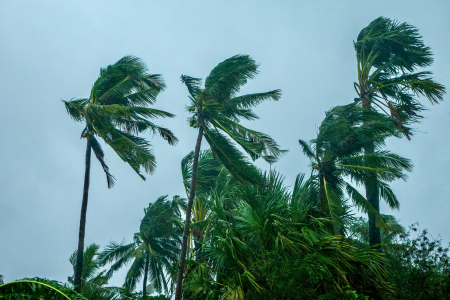
Posted by Tom Beloe, Colin Owen, and Claude Wendling[1]
On March 10, 2021, the IMF’s Fiscal Affairs Department (FAD) and its Caribbean Regional Technical Assistance Center (CARTAC), as well as the United Nations Development Program (UNDP) joined forces to organize a roundtable dedicated to green budgeting practices in the Caribbean region.
This roundtable was the second in a series of UNDP-IMF roundtables on this topic, the first covering the Asia Pacific Region. The Caribbean region seemed an obvious choice for this second event, given the relevance of climate change for small island states that are highly exposed to increasingly frequent climate-induced natural disasters, such as hurricanes. This vulnerability has already led to two IMF-World Bank Climate Change Policy Assessments in the region (Grenada and St. Lucia) and post-hurricane PFM efficiency reviews undertaken by CARTAC in the aftermath of Hurricanes Irma and Maria (2017). The region is also faced with the challenge of attracting and accessing climate finance. Finding ways to generate financing for climate change internally is paramount as countries look to submit their Nationally Defined Contributions.
Most of the roundtable was devoted to country presentations of green budgeting practices by the Turks and Caicos Islands (TCI), Antigua and Barbuda (A&B), and Grenada. Fiji also delivered a presentation on the experience of a small island state in the Pacific.
TCI explained how the 2017 hurricanes had led them to refocus one of the Sustainable Development Goals (SDGs) in their development plan to “A Robust and Climate Resilient Infrastructure”. The Director of the country’s Disaster Management and Emergency Services now sat on the government’s budget proposal review team for new capital spending, to ensure that all new infrastructure projects met stringent standards of resilience to future disasters.
A&B noted their success in becoming the first Caribbean country to gain access to the Green Climate Fund (GCF). Requests for GCF financing by the authorities had required an upgrading of the country’s PFM system. Extensive information must now be provided to the GCF to secure the use of their funds and monitor their implementation.
Grenada presented their green budgeting model, which is based on four building blocks. First, a strong strategic framework with objectives and priorities related to the environment and climate change to help inform fiscal planning. Second, tools to provide evidence of the impact of environmental policies such as green budget tagging, and performance indicators or spending reviews with a green perspective. Third, accountability through the publication of a green budgeting statement. And fourth, an enabling governance framework on budgeting which builds on several existing elements. These include a strong budget preparation process, good political ownership, actions to develop local skills and capacity, as well as close engagement with the parliament and civil society. The authorities stressed these achievements but also some remaining challenges. These include weaknesses in the Chart of Accounts, limited availability of data, and a still developing system for monitoring and evaluating the impacts of green budget policies.
From the vantage point of a small Pacific island state, Fiji explained their green budgeting approach which bears strong similarities to the “building blocks” outlined by Grenada. The authorities stressed their plans for green budgeting, which revolve around the following four axes. First, developing a climate budget tagging system with the assistance of the UNDP. Second, developing procedures and templates to identify climate-resilient expenditure for infrastructure projects. Third, mandating climate risk reporting for all government agencies – and for the private sector on a voluntary basis – through an upcoming Climate Change Bill. Finally, preparing the Ministry of Economy for accreditation to the GCF so that the country can undertake blended financing using both GCF and budgetary resources for its spending related to climate action and environmental conservation.
Overall, this roundtable painted a dynamic picture of developments in the Caribbean in the field of green budgeting, and of the mutual enrichment that may come from sharing experiences with countries within and outside the region.
The minutes of this roundtable as well as the presentations are available here.
[1]Tom Beloe is SDG Finance Advisor with the UNDP. Colin Owen is PFM Resident Advisor with the IMF’s Caribbean Regional Technical Assistance Center (CARTAC). Claude Wendling is a Technical Assistance Advisor with the IMF’s Fiscal Affairs Department.
Note: The posts on the IMF PFM Blog should not be reported as representing the views of the IMF. The views expressed are those of the authors and do not necessarily represent those of the IMF or IMF policy.





